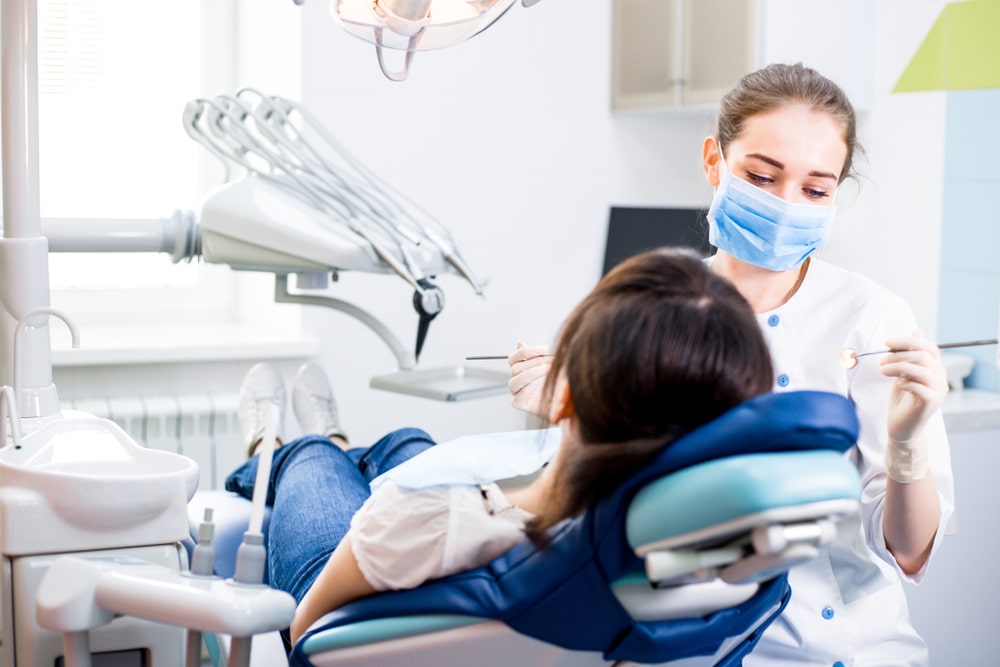The impact of dental discomfort on emotional well-being cannot be overstated, as it creates a cycle of pain, stress, and instability. Dental pain from TMJD is not limited to physical discomfort alone. It has far-reaching effects on a person’s emotional state.
The constant throbbing or sharp pain can lead to anxiety, irritability, and even depression over time. This emotional distress can then permeate into various aspects of life, impacting relationships, work performance, and overall quality of life.
Taking Care of Your Emotional Well-Being
TMJD can be a painful and disruptive condition that affects the jaw joint and the surrounding muscles. Fortunately, there are various treatment options available to alleviate its physical symptoms, including orthotic appliances, crowns, and braces.
However, it’s essential to recognize that addressing TMJD goes beyond the mechanical aspects of treatment; it also involves caring for your emotional and mental well-being. The following can help promote overall health, which can reduce painful TMJD symptoms:
- Stress Management – Practice stress-reduction techniques such as deep breathing exercises, progressive muscle relaxation, or mindfulness meditation. These can help you stay calm and reduce muscle tension in the jaw. Consider incorporating yoga or tai chi into your routine. These mind-body practices can promote relaxation and reduce stress.
- Counseling or Therapy – If stress, anxiety, or depression are contributing to your TMJD symptoms, consider seeking therapy or counseling. Cognitive-behavioral therapy (CBT) and relaxation therapy can be particularly helpful.
- Physical Activity – Engage in regular physical activity to help manage stress and tension. Exercise releases endorphins, which are natural mood elevators. Choose low-impact exercises like swimming or cycling if you have jaw pain, as high-impact activities can exacerbate TMJD symptoms.
- Healthy Eating Habits – Maintain a balanced diet rich in whole foods, fruits, vegetables, and lean proteins. Avoid excessive caffeine, sugary foods, and alcohol, as they can contribute to stress and muscle tension.
- Adequate Sleep – Ensure you get enough sleep each night. Sleep is essential for emotional well-being and overall health. If TMJD symptoms are affecting your sleep, consider using a nightguard or splint prescribed by a dentist to prevent teeth grinding.
- Relaxation Techniques – Incorporate relaxation techniques into your daily routine, such as taking short breaks to stretch or practice relaxation exercises for the jaw muscles.
- Avoid Overexertion – Be mindful of overexerting your jaw. Avoid chewing gum, biting your nails, or excessive gum chewing, as these habits can strain the jaw joint.
- Support and Social Connections – Seek support from friends and family. Talking about your feelings and concerns can help alleviate emotional stress. Maintain social connections and engage in activities you enjoy to boost your emotional well-being.
A Holistic Approach to Oral Health
Recognizing the profound connection between dental health and emotional well-being is crucial for achieving overall wellness. By taking a proactive approach to dental care, seeking open communication with your dentist, and exploring pain management techniques for TMJD, you can break the cycle of pain and stress. Remember, regaining control of your emotional well-being is possible, even in the face of dental discomfort.
Blog posts from Alexandra S. George DDS | Pittsburgh Dentist are for general information only. The content should not be considered medical advice. If you are in need of professional medical advice or assistance, please reach out to your local doctor or clinic.




